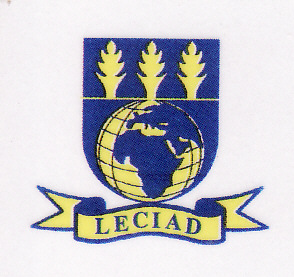The Legon Centre for International Affairs and Diplomacy (LECIAD) was purposely established in 1989 by the University as an institute for the study of International Relations and Diplomacy at the request of Ghana’s Foreign Ministry. LECIAD has since earned the reputation as a Center of Excellence in teaching, learning, and research in International Affairs and Diplomacy.
The Centre’s philosophy and approach to teaching and research are to empower students to understand the past and the challenges of our present world. LECIAD’s innovative approach to teaching and studying has earned it a reputation as a dynamic and prestigious institute for studies in International Affairs. Contemporary challenges are complex and call for new approaches, mould-breaking alliances, and multi-disciplinary approach to train students to become policy shapers in local, national, regional and worldwide agencies and organisations to play influential roles in Contemporary International Affairs.
LECIAD focuses on addressing some of the persistent and emerging challenges such as the environment, security, governance, gender and human mobility crises facing Africa. The Centre’s courses and values are thus shaped by the history of Ghana as Africa’s political liberation forerunner and doyen of democracy and good governance. Africa’s standing in the global political economy informs the Centre’s adoption of a problem-solving multidisciplinary approach to the study of International Affairs. The Centre thus combines theory and research to address issues of critical importance to Ghana, Africa, the Developing World and the International Community. Throughout its existence, LECIAD has explored the Ghanaian and African perspective in International Affairs by contributing to public discourse and sensitizing the general public on problems confronting Africans, both on the continent and in the Diasporas.
As part of our mandate for providing opportunities for continuing education through workshops, conferences, seminars, symposia, and occasional lectures, we have since 2002, been engaged in several capacity development activities. These include activities that contribute to enhancing legislative oversight in democratic governance and foreign policy. In collaboration with the United Nations, the African Union and the Economic Community of West African States, among others, we have developed and provided training in areas such as diplomacy, negotiation, mediation, and election management. The Centre has also been engaged in the development of civilian capacities for participation in peace support operations. Working with the continent’s multilateral economic and security organisations, the Centre has made invaluable contributions to the development of Africa’s peace and security landscape.



